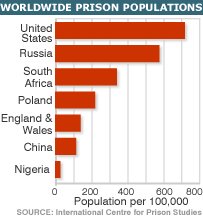Lesson to learn
Apparently every graduate student goes through this once, but it doesn't make that any better.
We lost one of our data disks yesterday, and I had a lot of stuff on it. Now, fortunately, some stuff was backed up, but even so I lost about a months's work - and that too mostly code.
This is supposed to happen to all graduate students, this loss of data. This is why you're supposed to back stuff up. That should be the first lesson for anyone starting any kind of career based on data. Although, now that I think about it, its equally, in fact more so, frustrating to lose stuff like pictures.
We might be getting better quality in digital format, but digital really sucks. I mean if you have say film negatives, and you store them in a fire-proof, water-proof safe in about 20 feet of concrete, then short of a nuclear weapon, they are pretty much safe. But with digital, well... you could lose stuff any moment - and all you can say is well the data got corrupted. And dont even get me started on CD's!!
I sure as hell hope someone is working on this. I mean, lets say at some point in the future, we have removed all books and all data is stored electronically. Even if we keep about 1000 copies of all known data somwhere, unless and until this is continually upgraded by reading every single bit of information - eventually we will lose more than we can afford. There's a nice subject for a scifi novel.



